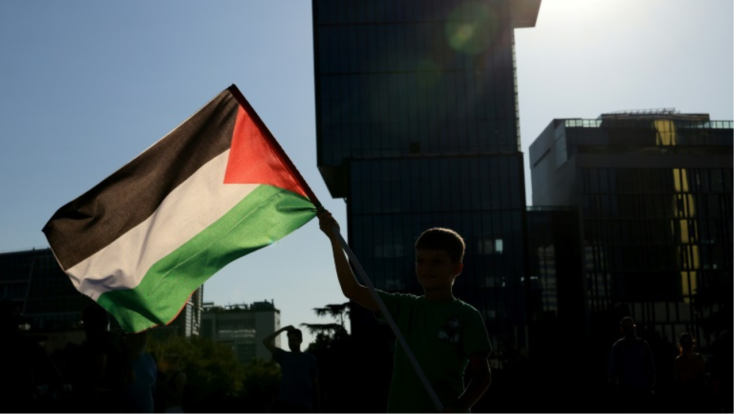
A group of imprisoned pro-Palestine activists has launched a hunger strike inside UK prisons, describing their protest as 'an act of resistance against Britain's complicity in genocide.' The activists, collectively known as Prisoners for Palestine, began refusing food on 3 November — the 108th anniversary of the Balfour Declaration, a British statement supporting the creation of a Jewish homeland in Palestine.
A Protest Marking a Century of Resistance
The hunger strike was initiated by two prisoners, Amu Gib and Qesser Zuhrah, at HMP Bronzefield in London. A third inmate, Heba Muraisi, joined them the following day. More members of the group are expected to join in a rolling hunger strike. Muraisi, who has Yemeni heritage and family in Gaza, has been held on remand for nearly two years over alleged actions targeting Elbit Systems — Israel's largest weapons manufacturer.
In statements shared via the group's official channels, the activists said they are taking 'drastic action' after exhausting all legal avenues. They accuse the British government of 'colluding' with Israel and argue that the UK's ongoing arms trade fuels war crimes in Gaza.
'We who are imprisoned by the British state for resisting the genocide of our beloved Palestinian people declare the beginning of our hunger strike,' Zuhrah stated. 'Until our demands are met, we will resist. We ask our Government now: Are you willing to let us die before you stop arming a genocide?'

Demands from Inside the Prison Walls
The group has outlined five key demands:
- An end to censorship of prisoner communication.
- Immediate release on bail for those held on remand.
- The right to a fair trial and access to all documents related to cooperation between British and Israeli officials.
- The deproscription of Palestine Action, which was officially banned under UK terror laws earlier this year.
- The permanent closure of all Elbit Systems sites in the UK.
Their statement also criticises the use of counterterrorism measures, such as the Prevent strategy, to suppress political activism. They call for an apology from Home Secretary Yvette Cooper over her previous remarks linking Palestine Action to 'possible Iranian funding'.
Widespread Support and Historical Echoes
More than 20 activist and solidarity groups — including Black Lives Matter UK, CAGE International, Campaign Against Arms Trade, and Healthworkers for a Free Palestine — have endorsed the hunger strikers' demands. Their joint statement describes the action as 'a response to the government's insistence on breaking international law and participating in genocide.'
The campaign resonates with a long history of political hunger strikes, from Irish republican prisoners in the 1980s to anti-imperialist activists like Georges Abdallah, who spent 41 years in French prison. Abdallah expressed 'full solidarity' with the UK activists this week.
'In the face of repression suffered by the activists of "Prisoners for Palestine", I express my full solidarity,' Abdallah said in a message shared with supporters.
Response from Authorities
The UK Ministry of Justice and Home Office have not yet issued public statements regarding the hunger strike. Under UK prison rules, inmates refusing food are monitored by medical staff, and authorities can intervene if a prisoner's health is at risk.
This protest comes amid ongoing controversy over the government's decision to ban Palestine Action earlier this year under the Terrorism Act, citing its alleged targeting of defence industry sites. Civil rights groups have condemned the move as an attempt to suppress political dissent, while ministers maintain that attacks on property linked to defence contractors are 'serious criminal acts'.
Final Stand for Justice
For the imprisoned activists, the hunger strike is a last resort. 'There is a hunger in me that food alone will not satisfy,' wrote Gib. 'We will not be silenced, disappeared, or forgotten.'
Their action underscores the growing tensions surrounding Britain's arms trade with Israel and the broader fight for Palestinian rights amid heightened repression and political unrest. As the strike continues, it raises urgent questions about justice, international law, and the UK's role in supporting or opposing war crimes in Gaza.







